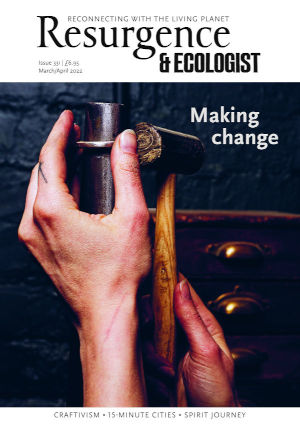In the last two years travel has become an existential question, not least for travel writers. Not only because of Covid: the climate crisis and colonialism have forced a hard look at why we travel, who travels, and who benefits. Nicholas Jubber has chosen to seek an answer through following the journeys of fairy tales and those who told them. In The Fairy Tellers it is the stories that travel, rather than the author.
That we typically don’t wonder who first told our best-loved stories is testament to how ubiquitous they are – they seem to have landed, fully formed, in our cultural consciousness. In one sense this is true, for their roots can be traced far back in oral culture: there is a nascent version of Beauty and the Beast, for example, that has been tracked back 5,000 years to the Bronze Age. These stories have mutated through countless tellings, the characters and events that most struck a chord passed on down the generations, their extraneous parts left by the wayside. In the age of the pandemic, it is easy to see a virulence in how they pop up across the globe, their best parts contagious, their constant variations. They are, in a meaningful sense, alive.
And yet for each tale there came a moment when it was fixed by a particular person. It is the lives of these individuals that Jubber gives us, and, Hans Christian Andersen aside, none is a household name, though their stories are. There is Hanna Diyab, a Syrian who arrived in Paris in the early 18th century and related stories he had heard in his homeland to the French scholar Antoine Galland, including Aladdin and Ali Baba and the Forty Thieves. Or Giambattista Basile, a member of the Neapolitan literati in the 17th century, who penned Zezolla, the first version of Cinderella found in Europe. (There is a 9th-century iteration found in China, in Duan Chengshi’s Miscellaneous Morsels from Youyang.)
There is a tension here between the written and the spoken. Driven by the success of earlier compendiums, 19th-century collectors made it their business to record the stories that had been handed down orally for generations. Ivan Khudiakov travelled the Russian countryside to record the tales of Baba Yaga and other folk tales of the peasantry, part of his project to emancipate the proletariat by spreading literacy through the villages. There are the Brothers Grimm, noting down the tales of the young women of their neighbourhood. Yet, as they wrote these stories down, they were also recording the demise of oral cultures brought about in no small part by the birth of the printing press.
The book’s strength, as with all good travel writing, is to elide the global with the local. These stories have shaped our morals and fantasies, the ideas that drive them universal, but they are memorable for the particular local flavour with which they were embellished by each teller. For me, though, Jubber’s retellings of the fairy tales, which intersperse the chapters, feel rushed and lack both the soul and the detail that have allowed them to endure. That is a shame, but it is also a spur to seek out the tales afresh, driven by this new-found knowledge of the tellers. I have not considered these stories for 30 years, and the Disneyfied versions have become how I remember them. But with young children of my own now, I have been moved by The Fairy Tellers to rediscover these tales and to pass them on to the next generation, just as others have always done.






